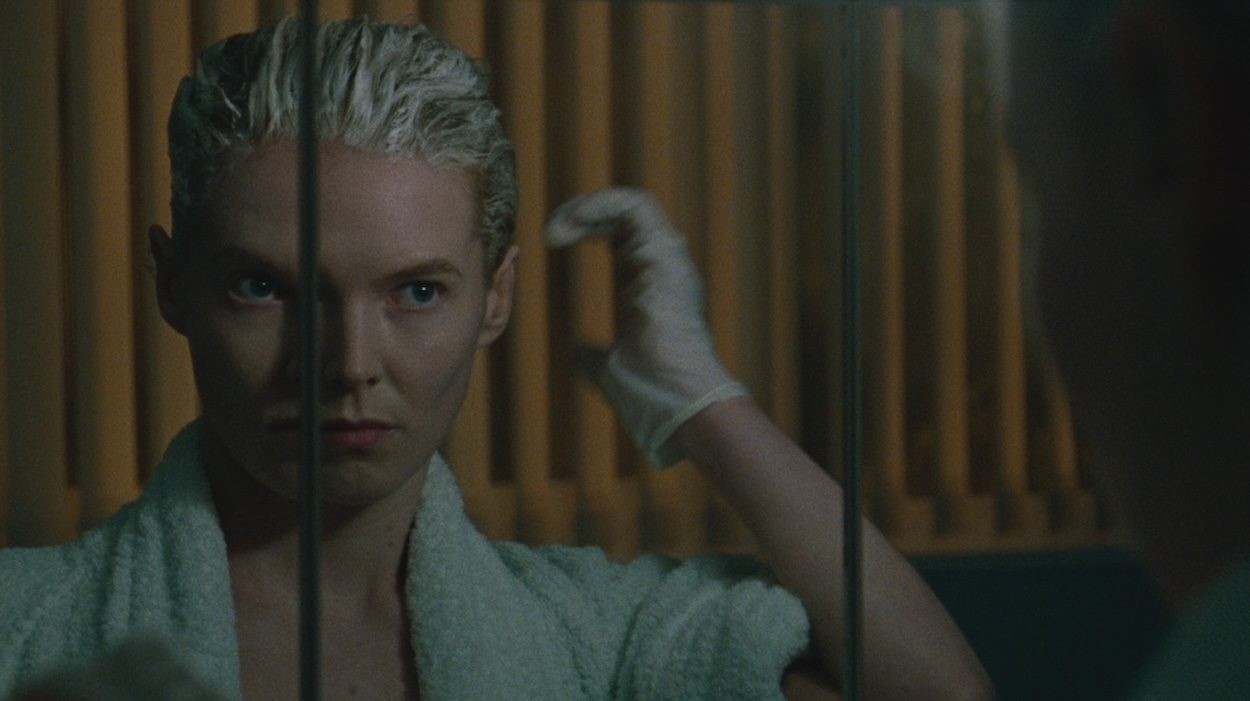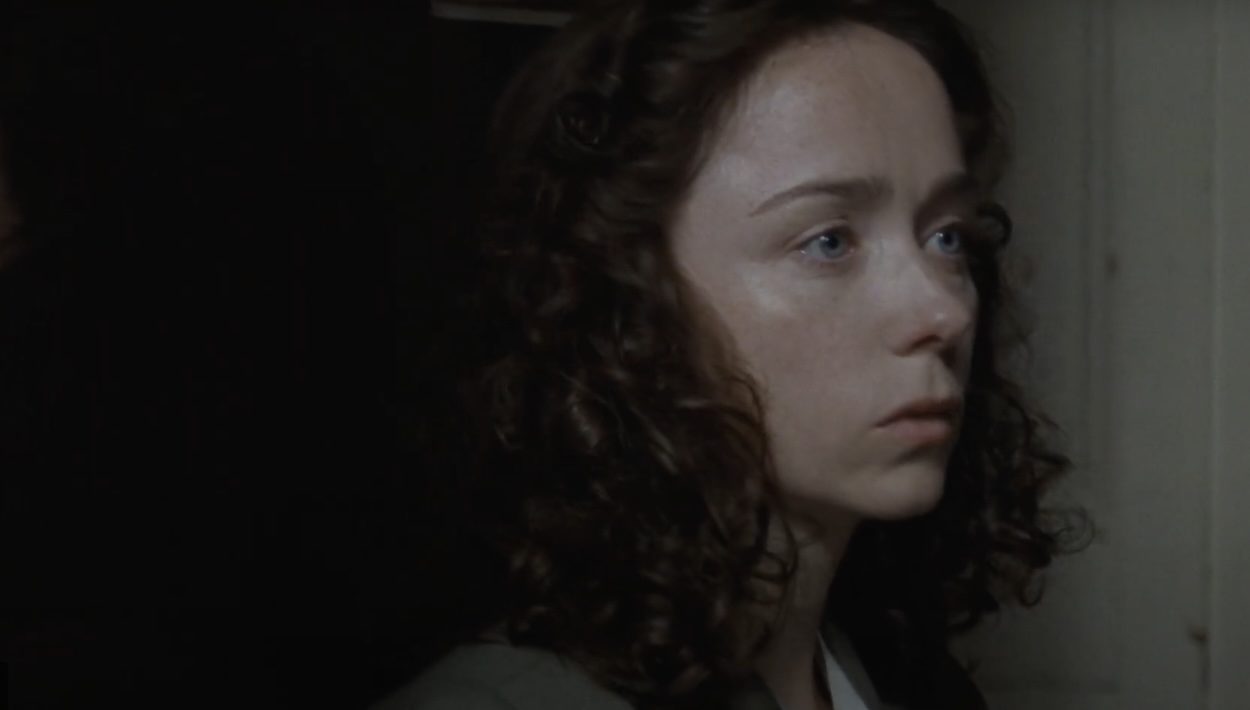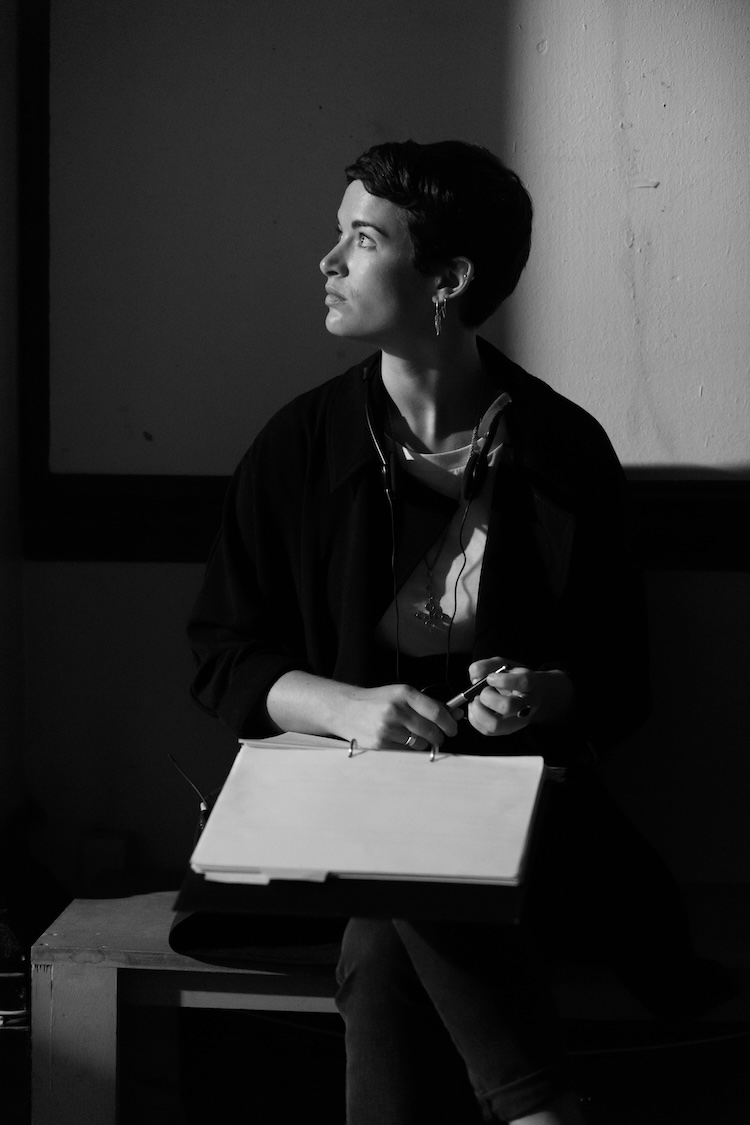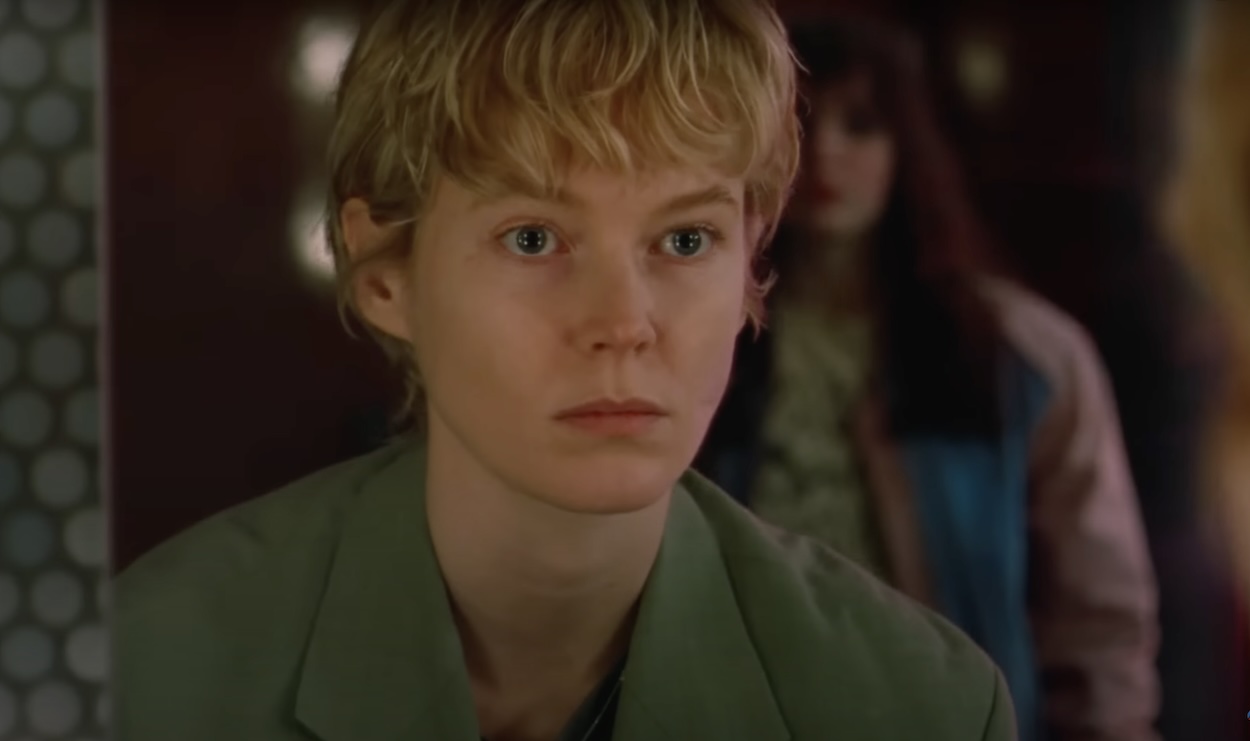Georgia Oakley
You got your first taste of the world of filmmaking at 17, after being cast as an extra – how did that lead you into a career in directing?
At that age I didn’t know anything about the process. Being on set for the first time was an opportunity to see behind the curtain. I was there for actors’ rehearsals, set dressing, costume fittings, etc and became fascinated by the collaborative nature of it all. I didn’t know I would go on to direct, but writing my own shorts seemed the only way I could think of to find my way into that world. I had a stint directing theatre at university, but as soon as I could I put my energy into writing and directing my own shorts.
After directing short films and commercials, you broke through last year with a BAFTA-nominated feature film, Blue Jean, which was inspired by the UK’s Section 28 legislation making it illegal to ‘promote’ homosexuality in state schools. What sort of research did you do to flesh out that initial spark, and how did the concept evolve from there?
I spent a good couple of years immersing myself in research while developing the script. The producer and I travelled around the UK meeting people whose lives had been touched by Clause 28. We also met and interviewed dozens of activists who were involved in the fight against the Clause. But the most precious research came in the form of relationships we forged with a handful of lesbian netball teachers who became an invaluable part of the process, right the way through into the edit of the film.
I was also lucky to have been a part of a great initiative run by Creative England, the BFI and BBC Film called iFeatures which was a year-long development incubator. Having their support really propelled us from seeing this as an idea, to realising we might be able to get the film made.
How much personal resonance did the story carry for you, as a child of the 80s growing up under the shadow of that legislation?
I definitely channelled a lot of my own experiences into the film, both as a kid growing up during section 28, and as an out queer woman. But, for me, what made it feel like a story that had to be told, were the clear parallels between the homophobic rhetoric bandied around at the time by the Tories, and the ripple effects we still see today. Whether it be in the ‘debate’ over trans rights or discussions regarding education. In my mind, the situation was largely unchanged; a huge number of people still live in fear. That was the driving factor in terms of wanting to get the film made as soon as I could.
Rosy McEwen in Blue Jean
Though the film is tied to a specific historic event and uses real archival footage from that time (the Blind Date clips are particularly nostalgic!), it also has a timeless quality. I was interested in the distinction you made in a previous interview between films ‘from’ the 80s and films ‘about’ the 80s. Why was that important and how did you go about striking that balance, in terms of props, colour grade, wardrobe etc?
I didn’t want the film to feel like a cultural time-capsule. I hoped it could have the capacity to resonate with younger audiences as much as it might with anyone who lived through the eighties. So that was on my mind, but it’s also a question of taste. I think we’ve learned to lean into a handful signals regarding that time period, but I was pushing for something that attempted to avoid those tropes. It is a portrait film; the world we see reflects the lead character. Jean always had a very clear aesthetic in my mind and I wanted that to permeate the rest of the film.
The film rightly won a BIFA for casting – Rosy McEwen is a revelation as the conflicted main character Jean, who’s waging a war with her own internalised homophobia – as is Lucy Halliday (Lois) and Kerrie Hayes (Viv). How did you approach the casting process for the main characters?
Rosy I was lucky enough to find when she sent in a tape during one of the lockdowns. She just started speaking as Jean without introduction and her voice and energy were exactly what I’d imagined when writing the script. I was very lucky. She’s an exceptional talent and we had a lot of fun together building the character after she came on board. For Lois we saw over six hundred tapes. Mostly non-actors. It was a tough search. Many of the girls who auditioned ended up as part of the netball team. When we found Lucy, we brought her for a chemistry read in London and that was the real game changer. She had this intense energy that she seemed to be able to turn on when she was face to face with Rosy. With both her and Kerrie, it was about finding someone with the right energy to sit alongside Jean. Both of them have the ability to unnerve Jean, to throw her off, and it was important for me to find actors who could genuinely do that. They also all got on really well and had a good laugh together, which is important when you’re facing a gruelling shoot like that. Our casting director Shaheen Baig is a bit of an industry legend, so credit to her, really, for orchestrating such a huge cast.
Despite the historical setting, the issues explored in Blue Jean feel depressingly current-day – the battleground has simply moved from gay rights to trans rights. Do you feel there’s more to be explored within this arena, perhaps in future features or short films (or even ads – see question below)? What other topics might you be interested to explore in future projects?
I think all my films are thematic cousins of each other. One of the central themes of Blue Jean was the performance element of self, or ‘the double’. That seems to crop up again and again in my work, consciously or un-consciously. I’m fascinated by the discrepancy between the way a person presents and whatever is really going on beneath the surface. Family dynamics are also endlessly interesting to me; what it means to make a family, what defines family, chosen or otherwise. But I often find themes are easier to unpack after the fact. After the script is written or the film is finished. Before that, I’m just pulling on an invisible string and seeing where it takes me.
From Georgia Oakley’s film Blue Jean
You’ve just signed to Eleanor for commercials representation – having directed some ads in the early stages of your career, what are you looking forward to most about returning to that space? And what sort of briefs would you ideally like to see landing on your desk?
It’s always been important to me to have multiple creative outlets flowing side by side. Almost all of the [non film-world] writers I admire split their time between short and long form, fiction and non-fiction. I think that’s healthy practice for someone who tells stories for a living, and I’m excited by the prospect of moving back into short form. To be able to tell stories in a short time takes precision and a real command of the craft. In terms of the briefs I’d like to be seeing, broadly speaking I’m looking for human stories. Anything that contributes to opening up a conversation where perhaps previously there hasn’t been one. I’m motivated by anything where the personal becomes political.
Compared to the film industry, the ad industry feels much less progressive in terms of LGBTQIA+ representation and support– every Pride brings accusations of rainbow washing and scandals like last year’s Bud Light show how quickly brands can discard their principles in the face of consumer pushback (even though, confusingly, there’s research to suggest that the majority of people support brands that support the queer community!). From your perspective as a queer filmmaker moving into the ad space, what should brands, agencies and production companies be doing to bring about change? And which brands are already doing great work as LGBTQIA+ allies?
It’s quite easy for me to spot when brands are simply paying lip-service to issues they’re ‘supposed’ to care about. But I also think this question is thrown around every which way and the answer is as simple as hiring people who can push the work into more authentic territory. That’s what they’ll do if they really want to bring about change.
What are you working on at the moment?
I’m collaborating with some really exciting producers and financiers on a couple of new feature film projects. It’s all early days though, so not much more I can say on that front!
Interview by Selena Schleh
INFO:
@eleanor.films
Eleanor Films website


















